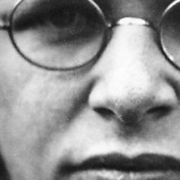Stories We Need to Hear
Doug Hynd | Wednesday, 28th March, 2018
Contemporary critiques of Christianity as a source of violence fail to note minority traditions of Christian dissent that have peacemaking at their heart. From my involvement in the Love Makes a Way witness against Australian detention of asylum seekers, and through friends in both the Anabaptist Association and the Quakers I have become aware of a range of Christian witnesses for peace across Australia over the past two decades. Yet little has been written about these exercises of Christian dissent and peacemaking in Australia and little reflection with the Christian churches on the theological commitments embodied in these witnesses. This lack is particularly noticeable given the uncritical memorialisation of Australian participation in war that has been spreading like a cane toad across the landscape. The Honest History website provides an excellent documentation and critique of these developments and the way that history has been plundered in the cause of the sacred (http://honesthistory.net.au/wp/).
Saints and Stirrers highlights the importance of recovering and retelling the stories of a minority who refused to conform and challenged the necessity of war by refusal to participate in it. There are Australian stories to be told and this provides a great model for how it could be done. In this collection of essays Geoff Troughton provides us with windows into an arc of peacemaking in New Zealand, from European settlement through to the close of the Second World War. The contributors got me thinking about some historical issues on peacemaking and opposition to war in Australia. The first issue relates to colonisation and the relationship with indigenous peoples. The early chapters in Troughton provide accounts of the engagement of Christian missionaries and Maori in episodes of peacemaking. Critically these chapters acknowledge the conflictual character of the European occupation of Aotearoa and explore the active agency of both Maori and missionaries in seeking a resolution of specific conflicts. Our increasing recognition of the reality of the frontier wars between the first nations and the European invaders paradoxically opens the door for recovering and retelling stories of attempts at conflict resolution. Failure to acknowledge the reality of the frontier wars has taken away the possibility of retelling stories of peacemaking.
The second issue that arises from the essays concerns conscription in New Zealand during the First World War. The heavy-handed treatment of dissidents by both government and judiciary raises interesting hypothetical questions for Australian historians. Had either of the conscription referendums in Australia been narrowly passed, would the increased number of objectors then have received treatment along the lines of those in New Zealand? It certainly seems likely that this would have caused further political upheaval and social division to a level well beyond those generated by the unsuccessful referendums.
Also interesting is the differing ways a variety of Christian sects and their members engaged with government and the judiciary around issue of conscientious objection in both world wars. These essays document the powerful reach of the state in the twentieth century and the ways it enforced its will when confronted with religiously groups that refused to recognise the overriding claims of the state. Magistrates and the defence department had difficulties in coming to grips with theological arguments and ecclesial identities of unstructured groups. They were much more comfortable in dealing with institutionally forms of religiosity. These essays make clear how much courage was required to maintain a conscientious stance against participation in war in the face of legal and social pressure. The line between principled civic courage of a minority and what may be regarded as ratbaggery, at least by the majority, can be hard to discern and represents an interesting challenge to the historian.
Geoff Troughton has done us a great service in bringing together stories that Christians in Australia as well as New Zealand need to hear and tell and tell again in a time in which a sacralising of war and the use the fear of violence to underpin accumulation of executive power dominate both public discourse and social imagination.
Doug Hynd is Adjunct Research Fellow of the Australian Centre for Christianity and Culture in Canberra and a stalwart member of the Anabaptist Association of Australia and New Zealand. Doug is married to Gillian and lives in Canberra.


I want to talk a Pastor plz i have questtion
your response will be very helpful for me